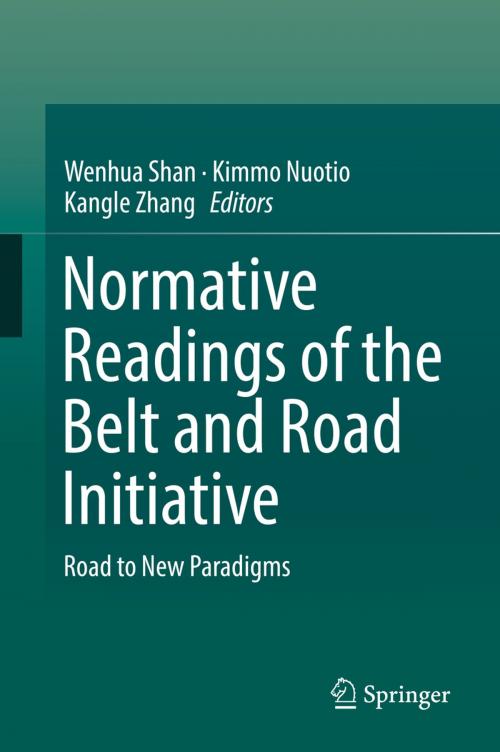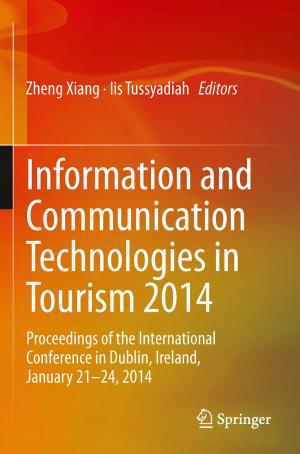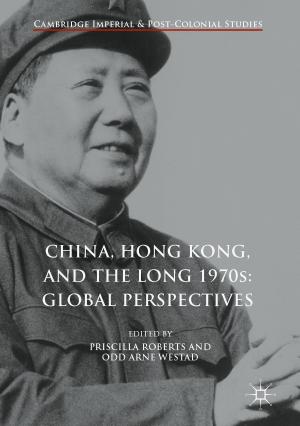Normative Readings of the Belt and Road Initiative
Road to New Paradigms
Nonfiction, Reference & Language, Law, International, Social & Cultural Studies, Political Science, International Relations| Author: | ISBN: | 9783319780184 | |
| Publisher: | Springer International Publishing | Publication: | May 31, 2018 |
| Imprint: | Springer | Language: | English |
| Author: | |
| ISBN: | 9783319780184 |
| Publisher: | Springer International Publishing |
| Publication: | May 31, 2018 |
| Imprint: | Springer |
| Language: | English |
This timely book offers revealing insights into the changing role of China in world governance as exemplified by the Silk Road Initiative, the People’s Republic’s first published major initiative for external affairs. Focusing on various aspects of the Silk Road Initiative, particularly those that are largely neglected in current discussions, including culture and philosophy, finance and investment, environmental protection and social responsibility, judiciary and lawyers, the authors explore a wide range of contexts in which China’s role as an emerging power in international relations and international law is examined. In the current era of ever-increasing populism, protectionism and challenges to globalization, the authors explore the Chinese philosophy underpinning Chinese norms of regional and international development. Bearing in mind the political and economic uncertainties hampering the establishment of such norms, the authors offer crucial insights into how the Silk Road Initiative could or should be developed and regulated.
Given its depth of coverage, the book is an indispensable read for anyone interested in the Initiative and its social-legal implications.
This timely book offers revealing insights into the changing role of China in world governance as exemplified by the Silk Road Initiative, the People’s Republic’s first published major initiative for external affairs. Focusing on various aspects of the Silk Road Initiative, particularly those that are largely neglected in current discussions, including culture and philosophy, finance and investment, environmental protection and social responsibility, judiciary and lawyers, the authors explore a wide range of contexts in which China’s role as an emerging power in international relations and international law is examined. In the current era of ever-increasing populism, protectionism and challenges to globalization, the authors explore the Chinese philosophy underpinning Chinese norms of regional and international development. Bearing in mind the political and economic uncertainties hampering the establishment of such norms, the authors offer crucial insights into how the Silk Road Initiative could or should be developed and regulated.
Given its depth of coverage, the book is an indispensable read for anyone interested in the Initiative and its social-legal implications.















